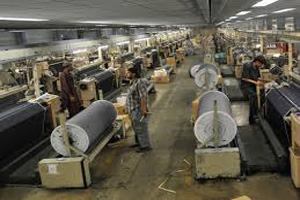
APTMA claims Punjab textile industry in strain
YarnsandFibers News Bureau 2014-05-01 09:00:00 – LahoreWith the claim of APTMA (All Pakistan Textile Mills Association) of the closure of 25 spinning and weaving factories as well as production of firms demoted by nearly 33%, it is sure for the Punjab province to face a crucial term in the nearing months.
The growing tension in the textile industry is basically due to dissatisfaction of increasing prices and decreasing supply of basic amenities. Electricity rates increased in September last year and 70 % gas cuts were imposed to the factories in Punjab.
This increased Rs 10 per unit of electricity of the factories than the mills in Sindh and Khyber Pakhtunkhwa. These factors have rendered uncompetitive within the country itself. The unpaid sales tax refund claims had wiped out 30-35pc liquidity of manufacturers and revaluation of the rupee had caused a loss of Rs7-10 a dollar to the exporters. Half of Faisalabad-based processing industry is closed down because of gas shortages.
Sheikh Ilyas Mahmood, chairman of the Faisalabad-based Pakistan Textile Exporters Association (PTEA), said that there will be a significant decline in textile exports (from Punjab) between May and September.
He suggests the government should raise gas supply to the factories to help exporters cut their energy costs, release billions of rupees stuck in sales tax refunds and give one-time compensatory rebate to make up for the losses suffered by the industry on account of exchange rate appreciation.
Ijaz Khokhar, a Sialkot-based garment exporter and chief patron of Pakistan Readymade Garments Manufacturers and Exporters Association (PRGMEA) said that there is a shortage of yarn and grey and processed cloth in the market. The industry would find it difficult to make the most of the concessions given under the European Union’s GSP+ scheme, unless yarn is available at right price and the processing industry provided gas.
APTMA (Punjab) chairman S.M. Tanveer puts forth his opinion saying that with many factories piling up yarn and cloth inventories, the producers have a choice to wait for the right time. If the government wants to help and save the industry, it will have to move fast and now.
Market Intelligence
Ask for free sample Report

experience
Customer Base
dedicated team
Countries Served Worldwide









